We live in a world of electronics and machines.
While many see these as mere conveniences or ways of entertaining ourselves, the reality is that we use most of them to do a lot of our work for us. From mousetraps to computer systems, each has its place in our lives; making things easier for us. But what did our ancestors do, before having all of these mechanical and electronic marvels to depend on?
While our ancestors did have some machines (although they didn’t have modern electronics), more than anything, they depended on animal power. I’m talking about the pioneering era of our country here, the early 1800s, before the automobile hit the scene. Other than the steam locomotive and the telegraph, technology hadn’t really hit the scene.
The 3 Pioneer Survival Lessons YOU Should Learn
Back then, America was an agricultural society, with most people living on farms and homesteads. Those people depended on animals for a lot of things, from providing raw power to drive machines, to help them with their work and even to providing them with food. The basic saying was, “If it doesn’t work, it’s food.”
Of course, which animals a family had and how many of those animals they had was an important part of identifying that family’s wealth. While those animals are a help in doing the work around the farm or homestead, it costs something to feed them; especially those which require grain.
One way a family would deal with this expense is to kill off their excess animals, converting them to food, either for their own use or for sale to others. Whole animals would also be sold or traded, to get them off the farm and reduce the cost of caring for them.
Draft Animals
Probably the single most important category of animals on any farm or homestead was draft animals. These were, quite literally, the workhorses of any farm, providing the motive power for planting, harvesting, wagons, travel, pulling up tree stumps and any other task that required more raw strength than a man could provide himself. Having the right draft animals not only made work easier, but it made it possible to work more efficiently, getting more work done.
- Horses – Horses were the most common draft animal used on farms. But these were draft horses, not the riding horses you usually see portrayed as draft animals on television. We’re talking Clydesdales and other closely related horses; big and powerful, but not so great to ride. While some more wealthy people might have horses for riding, most used their horses for pulling wagons and plows. Even though they eat horse meat in France, it was not common on the frontier.
- Mules – The mule is a cross between a horse and a donkey, providing more stamina than a horse can. They are also more surefooted in the mountains, especially in rocky terrain. Their greater stamina made them great for farm work, as they could plow more in a day, before tiring.
- Donkeys – The humble donkey is a great worker, carrying a surprising amount of weight for their size. It is from the donkey, that mules receive their greater stamina and surefootedness. While not as common on farms, where pulling is required, they are great pack animals.
- Oxen – Oxen are slower than horses, but also more powerful. Most of the wagon trains heading westwards were powered by oxen. They are excellent draft animals, due to their great strength. They also do a better job of living off the land than horses can. Finally, they could always be killed for food, if needed.
Other Work Animals
While draft animals were the main workers on farms and homesteads, they were not the only animals who worked. Other animals were kept for their specific abilities. These were not pets, as we have them today, but rather work animals who became part of the family.
- Dogs – Dogs have been used as work animals in a number of ways, most commonly as herd animals. Not only do dogs do well at herding sheep, they can also herd cattle. Being territorial, dogs are great at protecting property, a use for which many people have dogs, still today. But back then, the concern was to protect the homestead from bears, wild dogs, and raccoons. Dogs could also be useful for hunting. While it is possible to eat dog, that would only happen in times of desperation.
- Cats – Cats have become the laziest of animals in today’s world, thinking that they own their owners. But in pioneering days, cats were important for keeping rodents out of feed bins, hay stacks and other food storage areas. They were not fed, but rather expected to hunt their own food.
- Sheep – While sheep can be eaten, they were mostly raised for the wool they provided, which was highly prized in that time. There were no synthetic fabrics, so wool was much more important to pioneering people, than it is today. Lambs would be more likely to be slaughtered for food, than the adult sheep, although in an emergency, an adult sheep can provide a couple of meals.
- Bees – Some farmers would keep bees, even going to the point of importing them, when necessary. This was especially important for those who had orchards, as the bees were needed for pollinating the trees. The bees also provided honey, which could be sold as a cash crop.
Animals for Food
We’re talking farms here, so of course there would be animals which were raised just for the food they offered. These might be food for the family or for sale to others. Often, whatever extra animals were sold off just before winter, to avoid the cost of feeding them. Many of those which weren’t were butchered through the winter to feed the family.
- Hogs – Hogs were a very popular farm animals, as they required little care. They are easy to breed and will eat just about anything, even things that other animals can’t eat. One advantage that hogs have here is that their bodies extract poisons from foods, passing them out through their hooves. So hogs can be left alone to feed themselves, usually in the woods, without much risk of them getting sick. The fat from the hogs was useful in making soap and we all know how good bacon is.
- Cattle – While raising cattle was generally left to ranchers, some farmers would occasionally have cattle, especially dairy cows. The milk was a valuable crop and could be converted to both butter and cheese. Once they passed the age where they produced milk, cattle were a good source of food.
- Chickens – Chickens are a great food source, producing both eggs and being able to be slaughtered and eaten. On the average, mature chickens will produce eggs two days out of three. They are scavengers and will eat literally anything, plant and insect alike, clearing ground right down to the earth. This gets converted to food at a very efficient rate. Chickens need very little grain, usually only when the ground is covered in snow.
- Turkeys – While turkeys were rarely brought west in wagon trains, it was not uncommon for farmers to catch local turkeys and domesticate them. Turkeys are fairly docile creatures and will stay around the farm, eating, growing and laying eggs. They provide a lot more meat than a chicken does too, making them a useful addition to any homestead.
- Geese and Ducks – Although rarely domesticated, ducks and geese would often adopt a farm, living there, especially if the farm had a convenient pond or lake, as well as a good, natural source of food. These could be easily trapped or shot for food.
- Doves and Quail – Both doves and quail are easy to raise, although they need cages which fully contain them, unlike chickens, whose flying ability is limited. While they don’t have a whole lot of meat on their bones, there’s enough to flavor some soup.
- Rabbits – Being rodents, rabbits are fast breeders and easy to feed. They can be fed leftovers from the farm’s kitchen garden and will grow just fine on it. A good source of protein, their fur is also useful for any type of warm-weather clothing.
On Your Homestead
As you can see from this, there are a large variety of animals which can be raised on a homestead, whether you are homesteading now or are looking to homesteading as an option for survival. The two key elements you need to consider, when deciding on a particular type of animal are how much space they need and how hard they are to feed.
While it may be easy to feed these animals today, you might have serious problems feeding them in a post-disaster world, where you can’t just go to the local farm & feed store and bring home a few bags of grains. In homesteading, one of the biggest uses of space can very easily be raising grain for your livestock. So think this through thoroughly when considering various types of animals.
You’ll probably want to start raising some animals before a disaster strikes. Check your municipal laws however, to find out what limits there are on raising animals in the city where you live. Many will place limitations on the numbers and types of animals that are allowed in your backyard.


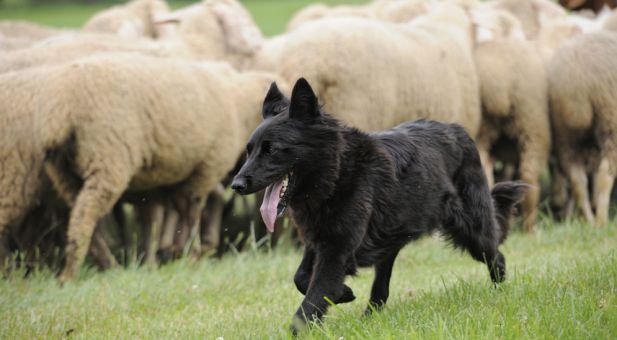

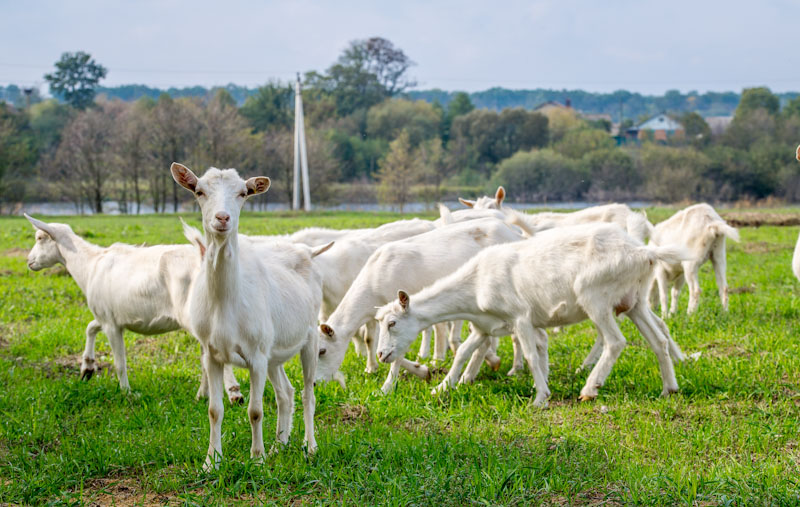
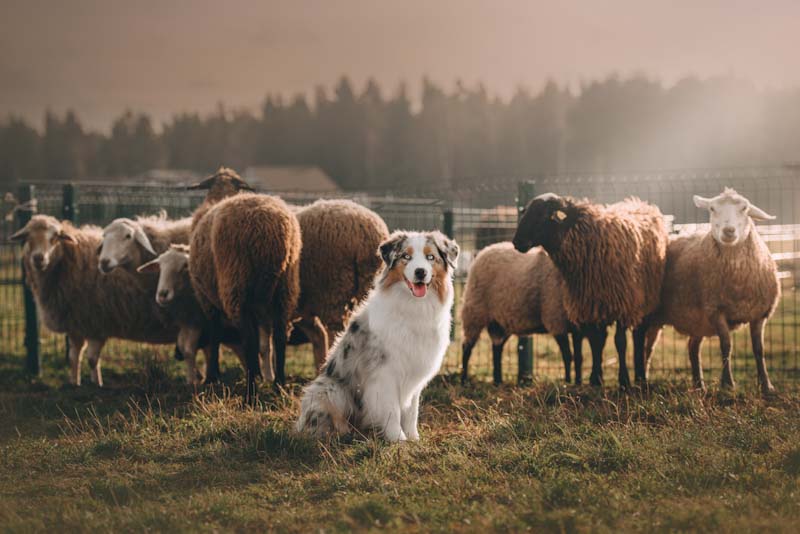
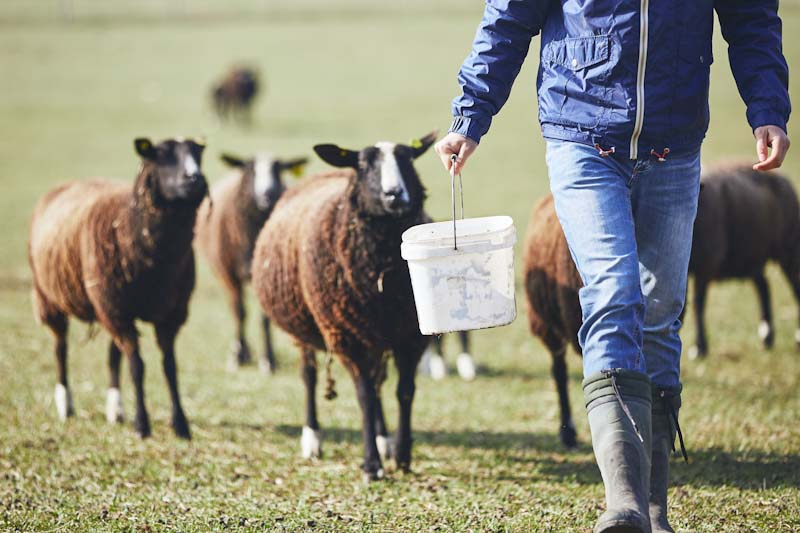
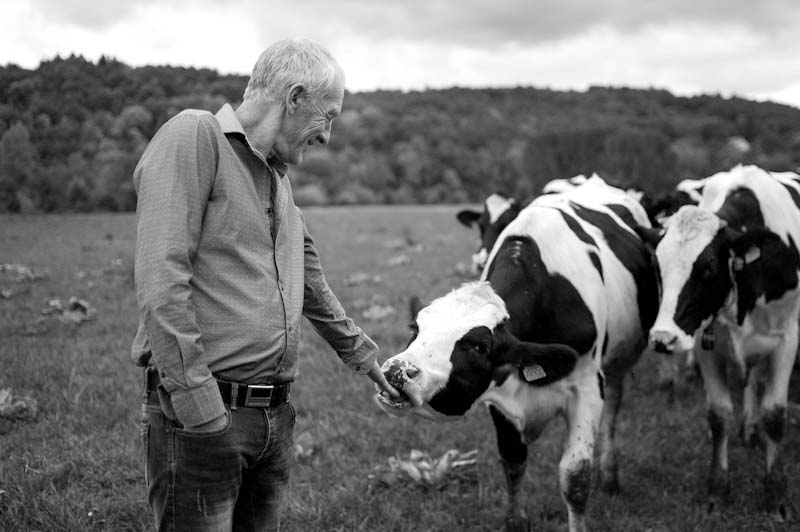


Rabbitgrandma | January 20, 2019
|
Sorry, rabbits are not rodents. Try Lagomorpha.
red | January 21, 2019
|
It’s a common mistake. Even Native Americans lumped them in with tsisdu, rodents, because of Rabbit’s ugly rep. I’d like to get some American Blues, but not till I have a place they can escape the heat in summer (central AZ). 112 degrees is common for weeks at a time. Some folks I know buried barrels with tunnels down to them for their rabbits. The underground pens make sense when you think of the eagles, hawks, coyotes, and stray dogs in the area. Niio!
red | January 20, 2019
|
Horses were most popular in the North, as they have less trouble with sub-zero temps than other draft animals. Morgans were the most popular breed of draft horse because they were for the plow, yet also for riding and looked good pulling the family buggy. Large draft horses did not become popular till after the Civil War.
Mules can work longer in the heat, so were popular with wealthy farmers in the South. The problem with mules is, you need horses and a jack. Horses can take 2 acres to support one for a year, so only the wealthy could afford them. Not till Missouri opened up did we have enough graze to support herds of mares and jacks.
Donkeys, Mammoth Jacks, and other breeds were common enough and could be used as draft animals. You can still see them used to plow and pull carts in 3rd world nations. The best thing about donkeys and mules is, they’re intelligent for an equine, and learn fast the good and the bad. Jacks have a bad habit of stalking predators. a major quality is, any donkey breed can grow fat on forage that would starve a horse.
Oxen were common, but bullocks (bulls as draft animals), and ox-cows (dairy cows used as draft animals) were more common. Every animals was expected to have multiple uses. Beef was poor man’s meat, unlike chicken and venison. The large breeds were preferred but mid-sized breeds like Piney Woods and Cracker cattle were very common as oxen in the South. Chimoyo and corriente are still used as oxen, and it’s rare a bull with go more than 900 Lbs. But, as long as the dew is heavy on the rocks, folks say, they thrive.
We rarely had cats on the farm. They attract snakes. Terriers and Dachshunds were better, anyway. Cats also carry a great many diseases that afflict people. The Grunenthal on the pix is one of the top cattle dogs, but am not an expert handling stock dogs. They require a good trainer. Farm collies were the most common dog for all-around work.
Milking sheep are back in popularity for small, dual-purpose flocks. Far more popular were always goats to clear out brush and give milk, as well as lambs. The larger breeds were also used as minor draft animals. They can pull a small sled or cart. The lambs were always more popular in the States than from sheep.
Bees? The Spanish introduced heather bees to the Americas. Before a century passed, honey bees were found from Canada down through Central America and beyond. After the Civil War, people imported Italian and German bees. Hives were skeps, not the box we know today, and in winter, when the honey was taken, the bees died, but there were plenty around. For pollination, bumble bees and carpenter bees, and small types like trigona do more work than honey bees.
When fattening hogs for slaughter, you had to pen them in a bear-tight shed or lose them. Mountain lions and wolves, stray dog and even rats would take a toll. Hogs are deadly, the only animal known to bite off the hand that deeds it. Boarlings have to be castrated or the meat tastes bad, and that’s why they eventually became total-confinement animals. Sows are very eager to defend their young, but still will lose half to predators. Yes, they make great pasture animals, but are destructive. Most states today have razorback trouble, and they’ve been known to kill and eat injured hikers.
Every semi-nomadic and permanent village Native American owned turkeys. They’re wary, can fly, are too big for most predators to handle, and toms will kill anything that messes with the hens. The eggs are preferred by most people in the Americas. They’re willing to hustle for a living and were used to clear out insect infestations in Native American fields. The black breeds seen today are direct descendants of turkeys Aztec raised, and they got them from Tula. Even Apaches had domesticated turkeys. The first trail drive was not out West, but in the 1600s, from a farm to Boston Commons. A farmer drove several fat cattle, some pigs, and a flock of turkeys to market.
Native Americans kept pet quail. The birds will chase off snakes and mice, and it’s still common to see part of a watermelon in a backyard for them and roadrunners to feast on.
Rabbits are an excellent choice, but cannot be grazed. The old way (in Europe) was to feed a warren and snare rabbits as you wanted them. It was tried here, but European rabbits suffer from too many diseases and parasite native rabbits are immune to. But, cage-rearing is easy, only a few minutes a day for a small ‘herd’. Today, it’s recommended do not breed any faster than every other month, as most, and every 3 months yet better.
Bob L. | January 22, 2019
|
Most cats are good hunters, even if they are fat and well fed, I had one when I was growing up who would go stand in a ditch full of water, in the rain and catch crayfish.. Got a problem with moles or voles in your garden or yard? A cat is better and safer than using poison. They will sit patiently watching over a mole hole and wait for the critter to come up from below and grab them.
liza nivalova | March 16, 2020
|
wow you told me info too
liza nivalova | March 16, 2020
|
wow lots of great info of animals pioneers used+i love cats
liza nivalova | March 16, 2020
|
and i used the info from this website for my project my pioneer project
Janis | March 8, 2021
|
We live in the Antelope Valley and summer temps here are often in 3 digits and winter temps occasionally in the single digits. Our rabbit herd is housed in a warren that has separate compartments consisting of an above ground wire cage with food and automatic waterer for each doe or buck, and a below ground compartment built of earth filled cinderblock and cement tile for the floor. We designed and built this about 7 years ago and our rabbits stay cool in the summer and warm in the winter. We also have a protective roof overhead to keep out rain. The chickens range underneath the wire cages and keep the rabbit manure in check by scratching. We use two larger units with recessed nest boxes that cardboard liners fit into for the does to kindle in. The kits stay in the nest better because the floor is above and by the time they can jump out of the nest they are also able to get back in on their own. We are raising New Zealand and Rex rabbits for meat and the occasional pet (not ours, we sell them). We got the idea from Italian drawings of a hillside warren and also Joel Salatin’s “racken” housing for rabbits and chickens. We keep it simple with a buck and 3 does and breed in fall and spring.